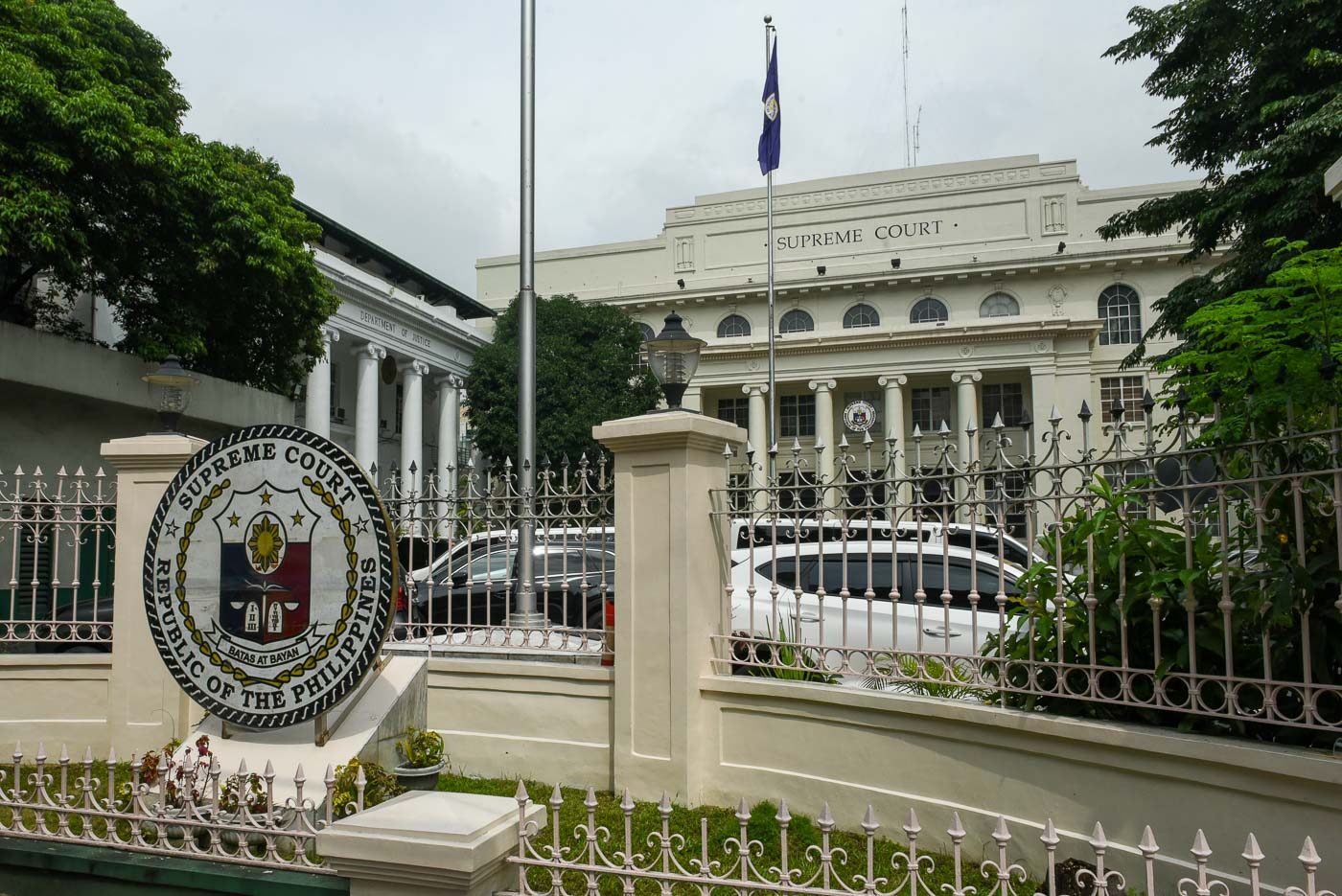SUMMARY
This is AI generated summarization, which may have errors. For context, always refer to the full article.

MANILA, Philippines – The Supreme Court (SC) rejected the move to preserve the testimony of the mother of House Speaker Martin Romualdez in an ill-gotten wealth case.
In a decision promulgated on July 5 but made public only this week, the SC First Division granted the petitions for certiorari filed by Juliette Gomez Romualdez, the wife of the late tyrant Ferdinand Marcos’ brother-in-law, Benjamin “Koko” Romualdez. Benjamin is Imelda Marcos’ brother.
By granting the petitions, the High Court annulled, reversed, and set aside the decisions issued by the Makati City Regional Trial Court (RTC) Branch 137 and Court of Appeals (CA), which gave the go signal for the perpetuation of Romualdez’s testimony. Perpetuating a testimony means preserving it for future use.
Associate Justice Rodil Zalameda penned the decision, while Associate Justices Ramon Paul Hernando, Amy Lazaro-Javier, Jose Midas Marquez, and Antonio Kho Jr. concurred.
The case decided by the High Court stemmed from Romualdez’s petition for certiorari, under rule 65 of the Rules of Court, seeking to nullify the CA decision, which allowed the execution of the order of the Makati court. The said order granted the “petition for perpetuation of testimony of petitioner filed by respondent First Philippine Holdings Corporation.”
The petitioner also filed the same motion, under the rule 45 of the Rules of Court. Romualdez also requested the reversal and setting aside of the CA decision. This case involving the wife of the late tyrant’s brother-in-law is only one of the several cases filed to sequester the Marcoses’ ill-gotten wealth.
The ruling
In its decision, the SC said it found that the CA “haphazardly” allowed the execution of petition “on a myopic reading of the facts that are heavily, albeit unduly, skewed in favor of the First Philippine Holdings Corporation (FPHC)” – which filed the petition before the RTC.
- According to the High Court, the appellate court only looked into the physical and medical condition of Romualdez, without even considering that the FPHC’s complaints were already denied by the Sandiganbayan at least twice.
- The SC explained: “Indeed, had the CA been more circumspect in scrutinizing all the available facts before it, it could have, and should have, also duly weighed the possibility that a failure of justice would also ineluctably result if petitioner’s testimony were to be unceremoniously taken despite the cloud of uncertainty on the existence of FPHC’s cause of action to assail the validity of the acquisition of the PCIB shares and to recover ownership of the same.”
- The court also noted that Romualdez’s only relationship to the institutions, which are part of the case, is her relationship with her late husband. The SC added that the FPHC also failed to provide sufficient cause to allow the preservation of Romualdez’s testimony.
- The FPHC’s allegation that the shares on Philippine Commercial and Industrial Bank (PCIB) are ill-gotten has no factual basis, said the SC. Since the late Benjamin Romualdez was cleared of his connection with one of the institutions mentioned in the case, “his widow, should not be unfairly used as a bait for FPHC’s unwarranted fishing expedition against TMEE and other individuals,” the High Court added.
What happened before
The FPHC was the former owner of 6,299,177 shares in the Philippine Commercial and Industrial Bank. Later, the FPHC sold the PCIB shares to Trans Middle East (Phils.) Equities, Inc. (TMEE).
- In 1986, the Presidential Commission on Good Government (PCGG) sequestered the PCIB shares, saying the shares were considered the ill-gotten wealth of its beneficial owner, Benjamin.
- The FPHC later filed two complaints before the Sandiganbayan, but the petitions were both dismissed. The corporation later filed the petition for certiorari with the Supreme Court, and then a petition to perpetuate Romualdez’s testimony before the Regional Trial Court.
- In its petition, the corporation argued that:
- Romualdez will be a material witness for the FPHC’s case, and without her testimony, the corporation “cannot safely and intelligently proceed to trial against her and the other potential adverse parties.”
- Romualdez is the wife of the beneficial owner of the so-called ill-gotten wealth in question and has personal knowledge of the circumstances of the case.
- Romualdez was already of advanced age at the time the petition was filed. The petitioner said the “uncertainties of time may later make her unavailable and/or may prejudicially affect her ability to testify before the Sandiganbayan when the case filed by the PCGG in which FPH seeks to intervene, goes to trial and where, to reiterate, she is a material witness for petitioner FPH.”
- The corporation added that the perpetuation of her testimony is necessary to preserve the same.
- In 2015, the RTC granted the FPHC’s petition, saying that the preservation of Romualdez’s testimony may prevent “failure or delay of justice since she was already of advanced age.” The CA, in 2016, issued a resolution granting the corporation’s appeal.
How does preservation of testimony work?
The guidelines on the preservation of testimony are provided in Rule 134 of the Rules of Court.
- According to the Rules of Court, any person can file a petition to perpetuate his/her own or another person’s testimony regarding any matter, through any court in the country.
- The court will allow the perpetuation of a testimony if it is satisfied that the said testimony may prevent a failure or delay of justice. In facilitating the perpetuation, the court will make an “order designating or describing the persons whose deposition may be taken and specifying the subject matter of the examination.”
- The deposition or the witness’ testimony sworn out of court can be taken through oral examination or written interrogatories. The testimony would be acceptable as evidence and “may be used in any action involving the same subject matter” defined by the court. – Rappler.com
Add a comment
How does this make you feel?









There are no comments yet. Add your comment to start the conversation.